FORT SAM HOUSTON, Texas -- According to the Centers for Disease Control, food-borne diseases are estimated to cause 6 million to 81 million illnesses and up to 9,000 deaths in the United States per year.
On the frontlines of this ongoing battle is a group of Soldiers, called veterinary food inspection specialists, 68Rs. These Soldiers are the first line of defense in ensuring that Soldiers and the American public have safe and wholesome food.
Before becoming the military's food inspectors, Soldiers must attend an eight-week course at the Army Medical Department Center and School, Department of Veterinary Science at the Food Safety and Defense Branch at Fort Sam Houston.
The school is very intense and covers a wide range of curriculum of both hands-on and didactic training covering the inspection of red meats, poultry, water foods, eggs, dairy products, and fresh fruit and vegetables. They train specialists on how to indentify unsanitary conditions in food storage facilities that include both military and commercial facilities.
Instructors at the school are well-versed in all aspects of food protection and inspection and have worked in various locations and situations, and on average have at least 12 years of experience to pass on to students at the school.
Sgt. 1st Class Christopher Still, instructor, Food Safety and Defense Branch, is a member of the team that instructs the meat and waterfoods portion of the course, which is a week and a half long in duration. In this block of instruction, the students learn different cuts of meat and all the deficiencies that go along with meat. "We want to make sure the customers get what they pay for," said Still.
Students speak very highly of the instructors and their knowledge. Pvt. Victoria Coakley, from Sumter, S.C., who just joined the Army Reserve at the age of 32, said she loved the school and the instructors are very knowledgeable and make learning easy.
Once graduated from Advanced Individual Training, Soldiers may find themselves working in various situations and locations. This is because the Army is the only service appointed by executive order by the Department of Defense to do the Veterinary Services mission. Veterinary food inspectors may end up working on a Navy ship, on an Air Force base, in laboratories, commercial facilities or attached to units in combat.
"It isn't uncommon for us to help assist with other government agencies like Customs or Border Patrol, or assisting with projects such as the Olympics. It was Army food inspectors who were part of the team at the Olympics making sure they had a safe food supply," said Maj. Margery Hanfelt, chief, Food Safety and Defense Branch.
Staff Sgt. Howard Lampson is from the Army National Guard, assigned to the 7305th Medical Training Support Battalion, Camp Parks, Calif. He is retraining from the combat medic, 68W - Military Occupational Specialty into the 68R MOS. He said that this is a completely new area of study for him. "It was surprising how involved and how technical food science can be," said Lampson.
Veterinary food inspection specialists' duties can include assisting in the inspection of food designed for human consumption, conducting quality assurance inspections in food-handling establishments, conducting sanitary inspections in military and commercial facilities, and collecting, preparing, and transmitting samples to the laboratory for testing.
They help in the prevention and control of accidental food-borne illnesses that can be caused by Salmonella or chemical agents such as residual sanitizers. In addition, they are also part of the team fighting against tampering or biological/chemical terrorist attacks against food. They are also charged with operating nuclear, biological and chemical detection equipment used in early detection of intentional contamination of food supplies.
In combat environments, veterinary food inspection specialists are essential in the sustainment of our military fighting force. They are on the frontlines with troops protecting and inspecting everything they eat or drink from bottled water to Meals Ready to Eat to Heat and Serve Rations.
These Soldiers usually go unnoticed because most of their work is done behind the scenes, but their jobs are critical because it could mean life or death to many service members and their Families worldwide. They inspect more than $22 million of subsistence daily.
Even though veterinary food inspection specialists usually work behind the lines and sometimes go unseen, their jobs are on the forefront in the battle of ensuring the safety and the well-being of American service members and their Families.
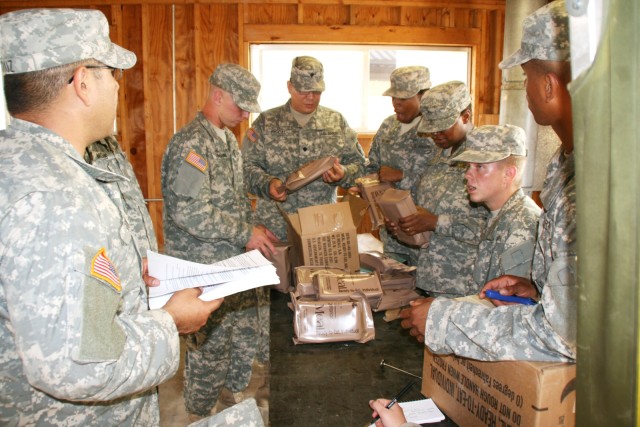
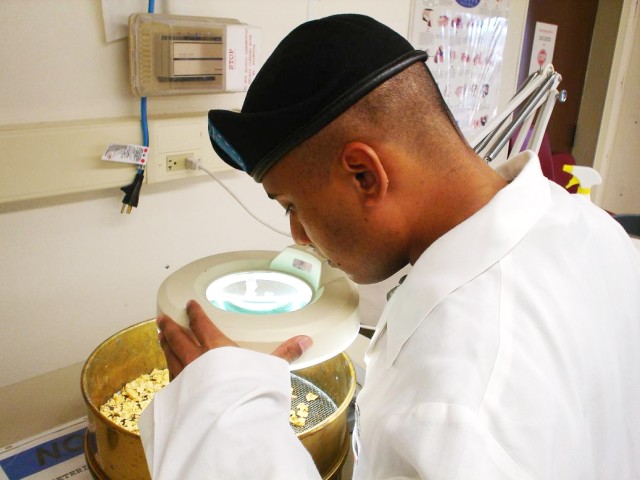
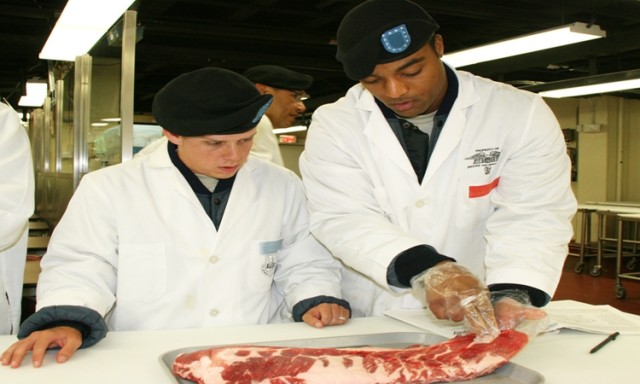
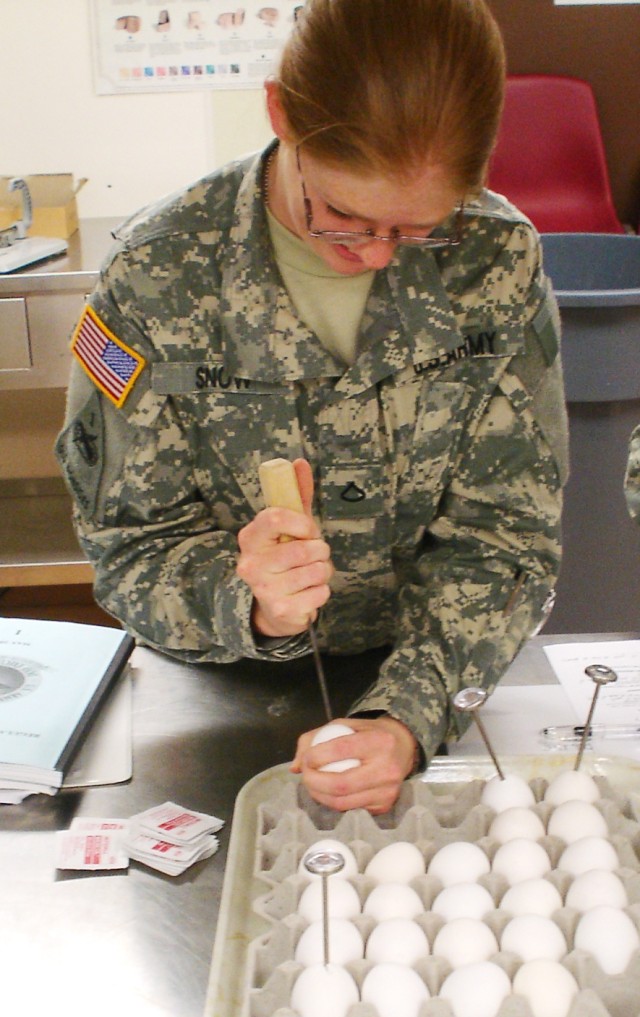
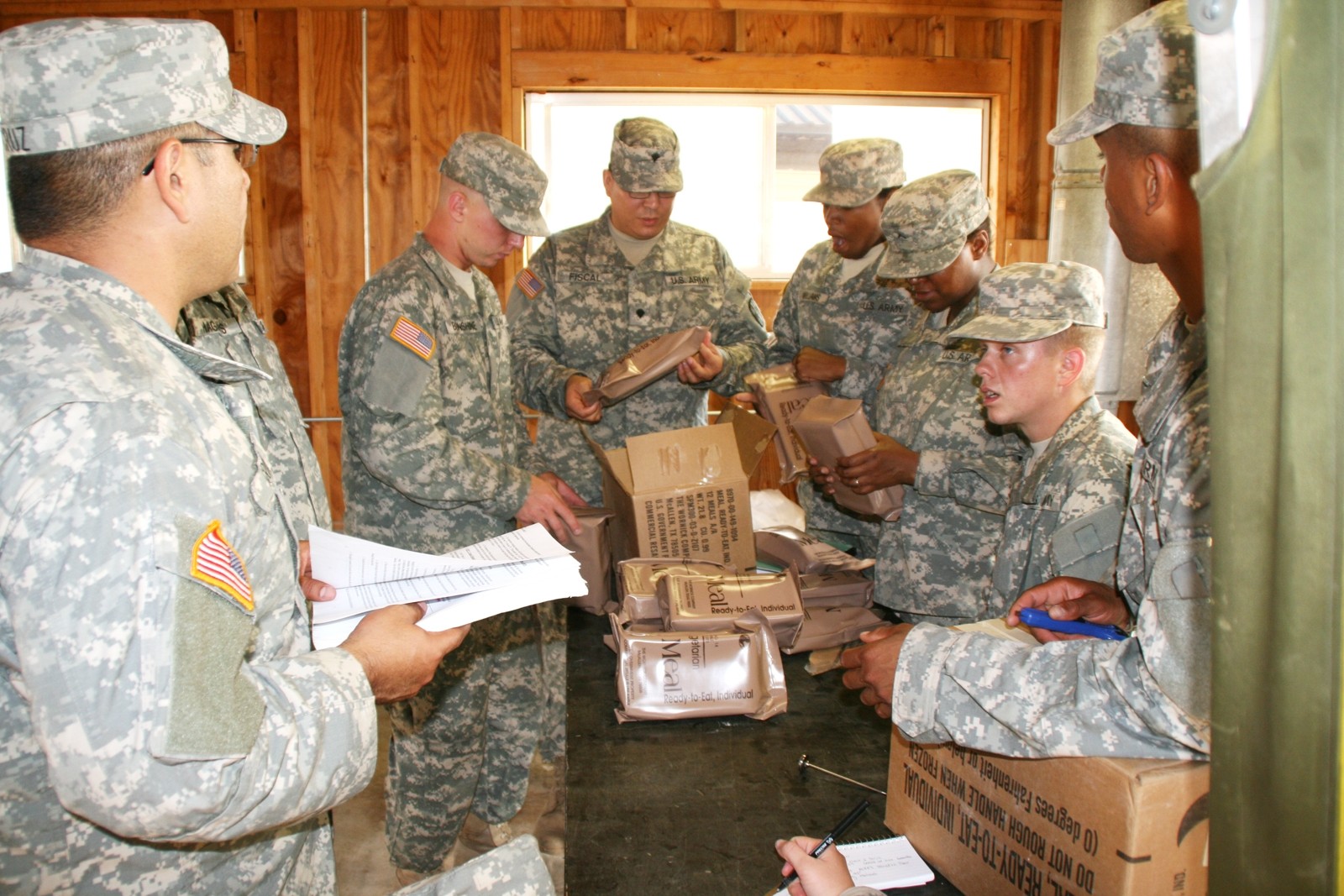

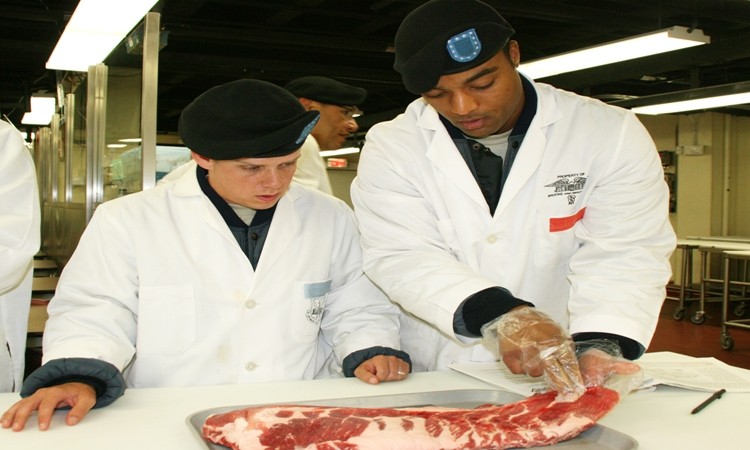

Social Sharing